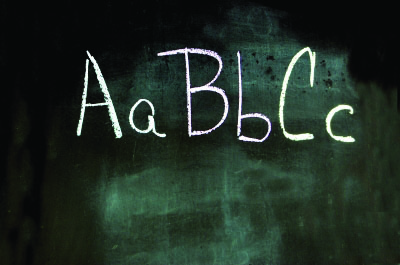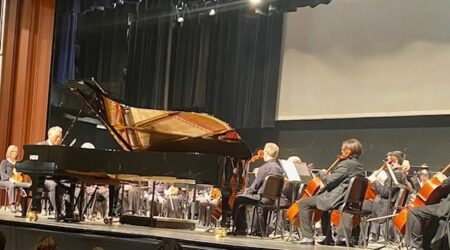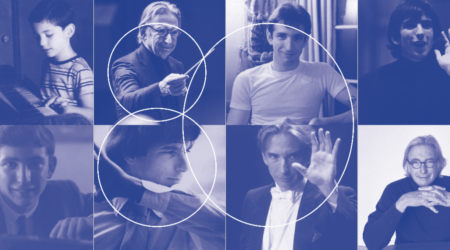The Unspoken Struggle of Immigration
This summer, I lived in Turkey, and I was effectively mute for 5 months. I did not fully feel the extent of it until I traveled to Georgia, chatted and joked freely with strangers in Russian for a couple weeks, then crossed the border back into deaf-muteness. My Turkish never got too far past greetings […]
This summer, I lived in Turkey, and I was effectively mute for 5 months. I did not fully feel the extent of it until I traveled to Georgia, chatted and joked freely with strangers in Russian for a couple weeks, then crossed the border back into deaf-muteness. My Turkish never got too far past greetings and ordering lentil soup, and to Turks I remained an innocuous presence without personality. I didn’t mind – I knew I’d have the luxury of leaving Turkey and retuning home. I remember the relief that fall of moving to Spain, a country whose language I speak, and how suddenly, miraculously easy everything seemed, how freeing it was to speak in complete sentences, with my words and not with my hands. And I remember the thrill, when, a few months later, I returned to the US and was funny and witty again – fully myself.
This summer also happened to be the 20 year anniversary of my family’s immigration to the US from Moldova. I was 7 at the time, with a child’s unquestioning acceptance of change, and I took the packing and much longer unpacking in stride. I was dimly aware of the big picture difficulties, but it was details that held my attention: the abundance of bananas, my favorite fruit; the working fireplace in our new house; the foggy beach; the endless hallways and multihued fellow students at my elementary school. I struggled with the language for a few months, but by the following fall, I’d won the grade 3 spelling bee and lost any trace of an accent.

But I’d left Moldova as a kid, and I was still a kid in the US, just with new American habits, smitten with my neon rollerblades and with the drama of Halloween costumes. My parents, on the other hand, underwent a sudden transformation. My father was an engineer, my mother a graphic designer, but in the US, they became merely immigrants, a stifling new identity that would take years to shake off.
Here’s a brief selection of situations that you will run into as an immigrant: you’ll avoid giving simple directions, because it’s too much work to explain in broken phrases; you’ll panic each time the phone rings; you’ll be overwhelmed by unfamiliar labels in the grocery store and turn home; you’ll dutifully laugh along at jokes you do not understand. Your name will be mangled, and you will become well versed in all the stereotypes about your country of origin from well-meaning but misguided questions. You’ll want to take endless naps after each day’s effort of speaking a new language. You’ll be jealous of 5-year-olds more fluent than you are.
Perhaps you’ve traveled abroad, where cultural misunderstandings became hilarious anecdotes, where everything from taking buses to reading menus becomes a jigsaw puzzle. Perhaps you’ve even enjoyed this challenge, cracking the code a word at a time, miming the rest, feeling relief anytime you came across an English speaker. But all along, you knew that you were coming home to pick up your life again, just as you left it. In contrast, an immigrant knows that no matter how difficult it gets, there is no going back. In our San Francisco apartment, our family spoke Russian, and were still our old selves – well read, humorous, quick-witted – but past the apartment door, those first months and years, my parents’ identities were half formed. They had already lived entire lives, elsewhere, but now had to reconstruct themselves in a new culture, word by word, every day.
Immigration is a process, and it is never truly completed. Language mistakes won’t disappear and accents won’t entirely fade – even for me, speaking English like a native, anger or excitement will sometimes throw a Slavic smudge on my vowels. It dawned on me only later, slowly, that it took my family serious guts to move to a new country, sight unseen, simply on the promise that it would be better. We adapted, of course, slowly. Our borsht recipe now regularly features soybeans, and Russian pickles and beet salad always have a place next to our Thanksgiving turkey. We go back home to visit and stick out with our automatic American smiles. But I never forget that immigrant core, and every day I think about my gutsy, Russian-accented American parents, and how grateful I am that they stuck it out.
Kseniya is an overthinker and is always curious about the world. She lives to travel and to tell stories, and her biggest challenge is finding enough hours in a day to fit in all the reading she wants to do. She currently works at Upwardly Global, helping skilled immigrants restart their careers in US.
by Kseniya Tuchinskaya





